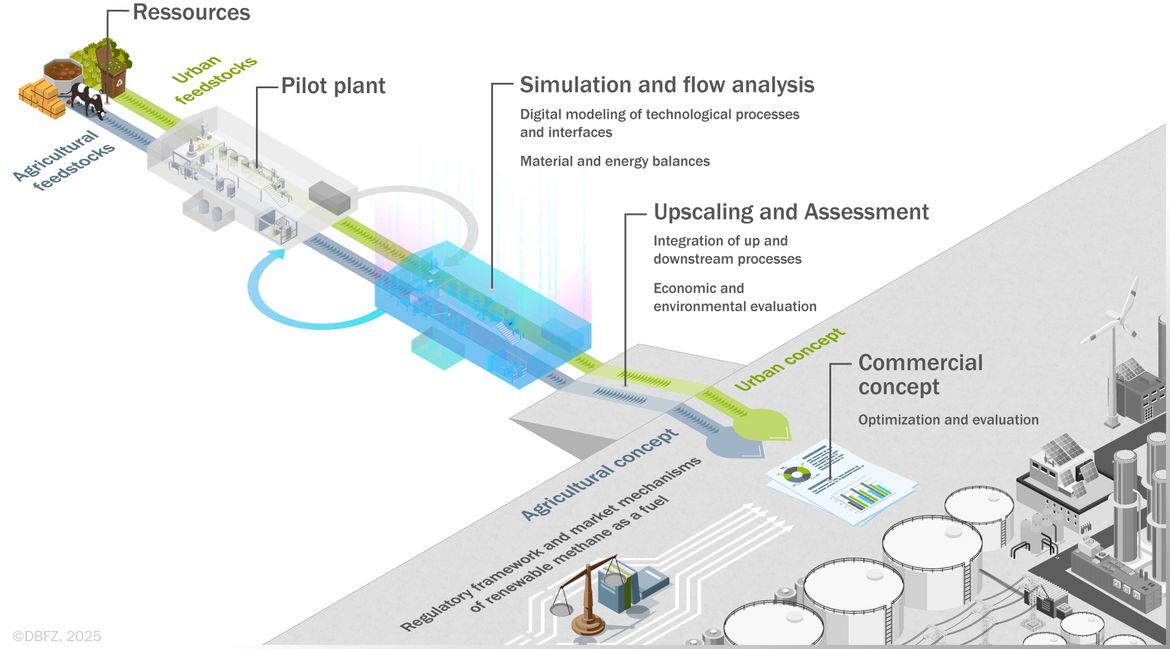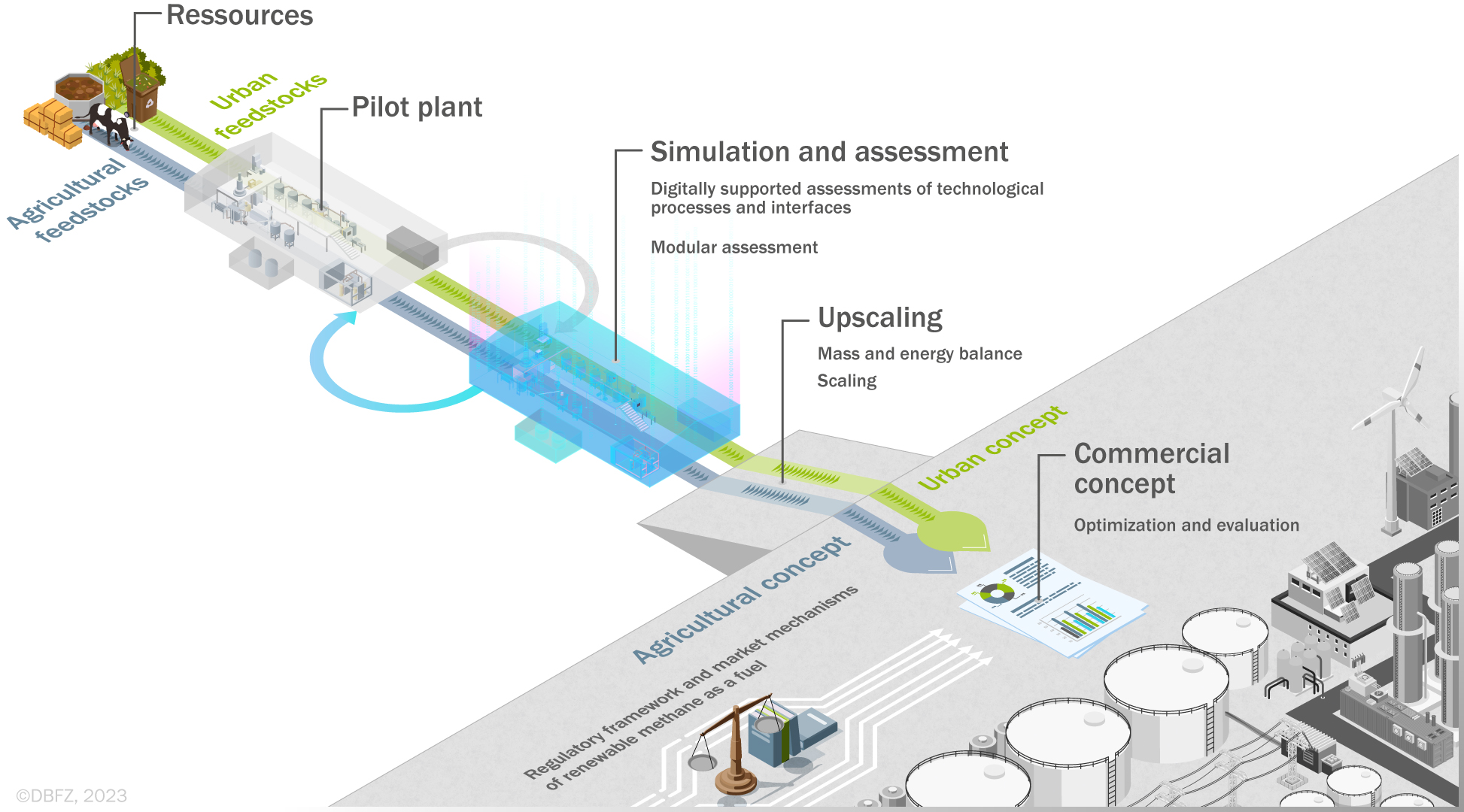Research and demonstration project Pilot-SBG
Bioresources and hydrogen to methane as fuel
Piloting | Optimization | Concept Development
The Pilot-SBG project focuses on the provision of renewable methane as an energy carrier for transport sectors that are difficult to electrify.
One central aspect of the research and demonstration project is the planning and construction as well as the successful trial operation of a pilot plant on a pilot plant scale. Innovative processes and state of the art technology implementation increase the methane yield and valuable by-products from biogenic residues, waste and green hydrogen.
In terms of an innovation-supporting service, extensive tests are carried out and process parameters are optimized iteratively. On the other hand, the data collected will be analyzed and comprehensively evaluated in order to further develop the overall concept and to accompany and support its scaling up to commercial scale.
Key elements of an accompanying feasibility study are above all resource allocation and availability as well as other location, infrastructure and market issues.
After successful commissioning, the focus will be on stable routine operation. Within the four planned operating campaigns, resource efficiency and methane yield are to be optimized, and the product portfolio expanded. Two campaigns each are planned with residues from an agricultural scenario (straw and cattle slurry) and from an urban scenario (green waste and biowaste). Planned CNG filling in cylinder bundles is to take place within the DBFZ infrastructure; in the future, refueling of DBFZ fleet vehicles is also planned.
Following the pilot-SBG project, the pilot plant will be used as a central component of an R&D technology platform for further research and development projects with partners from industry and science. A particular advantage is the high flexibility of the plant with regard to the expansion with new, innovative modules or the possibility of detaching individual plant components on the process chain and operating them separately.
Project goals
Reduction in greenhouse gas abatement costs for renewable LNG | Optimization of resource efficiency, especially with regard to maximization of the specific methane yield and utilization of fermentation residues | Development of optimized example concepts on a commercial scale and sensitivity analysis | Identification of criteria for long-term viable plant concepts for renewable methane |
|---|

